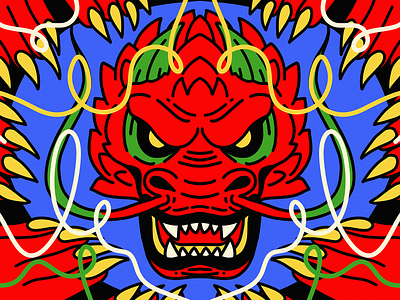
First, Rule fifty three of Implementing Regulations of the Chinese Trademark Law, Rule 13 of Provisions on Well-known Trademark Recognition and Protection, the Chinese Trademark Law (2010 Draft for Examination) provided by the CTMO and the Chinese Trademark Law (2011 Draft for Comments) provided by the Legislative Affairs Office of Chinese State Council stipulated the terms as "well-identified trademark" and "may deceiving or misleading the public." The Chinese Trademark Law (2012 Draft for Comments) supplied by the Legislative Affairs Commission below the Standing Committee of the Chinese National People’s Congress and Article fifty eight of the Chinese Trademark Law 2013 stipulated the terms as "well-recognized trademark, registered trademark" / "registered trademark, unregistered nicely-known trademark" and "misleading the general public." That's, the Chinese Trademark Law 2013 continues to undertake the criteria of "misleading the public" after extending the safety scope from the registered nicely-recognized trademark to the registered trademark without properly-identified standing and the unregistered effectively-recognized trademark. In April 1986, on the Fourth Session of the Sixth National People's Congress, the general Principles of the Civil Code was authorized as "one in every of China's fundamental legal guidelines." Consisting of more than one hundred fifty articles, the code was intended to regulate China's inner and exterior economic relations to establish a stable base conducive to commerce and enticing to foreign traders.
 Starting after the Gold Rush and continuing long after repeal of the federal legislation during the Second World War, Chinese exclusion was the crucible in which the American debate over immigration and national identification first took shape and was solid. How fitting, then, that we name the center in honor of our very first Chinese student, somebody who overcame quite a few barriers to grow to be the first pupil from China and first Chinese American admitted to apply legislation. In 2015, Chang was granted posthumous admission to the California State Bar, following advocacy efforts by the University of California, Davis School of Law’s Asian Pacific American Law Students Association, and the group’s college adviser, Professor Gabriel "Jack" Chin. The 1890 California precedent has lengthy been "notorious amongst Asian American authorized scholars," Chin mentioned. Chin asked his college students attempt to find a approach to deal with that ignominious ruling. The 1890 California ruling had denied Chang a law license underneath the federal Chinese Exclusion Act, which Congress handed at California’s urging and which the U.S. Rachelle Chong, Chang’s nice-grandniece and a outstanding California lawyer, said the household found a number of years ago that Chang had been denied a law license due to his race. 3. Chinese Legal Studies Center Named for Hong Yen Chang 1886, the first Chinese Lawyer in the U.S.
Starting after the Gold Rush and continuing long after repeal of the federal legislation during the Second World War, Chinese exclusion was the crucible in which the American debate over immigration and national identification first took shape and was solid. How fitting, then, that we name the center in honor of our very first Chinese student, somebody who overcame quite a few barriers to grow to be the first pupil from China and first Chinese American admitted to apply legislation. In 2015, Chang was granted posthumous admission to the California State Bar, following advocacy efforts by the University of California, Davis School of Law’s Asian Pacific American Law Students Association, and the group’s college adviser, Professor Gabriel "Jack" Chin. The 1890 California precedent has lengthy been "notorious amongst Asian American authorized scholars," Chin mentioned. Chin asked his college students attempt to find a approach to deal with that ignominious ruling. The 1890 California ruling had denied Chang a law license underneath the federal Chinese Exclusion Act, which Congress handed at California’s urging and which the U.S. Rachelle Chong, Chang’s nice-grandniece and a outstanding California lawyer, said the household found a number of years ago that Chang had been denied a law license due to his race. 3. Chinese Legal Studies Center Named for Hong Yen Chang 1886, the first Chinese Lawyer in the U.S.

He first applied for redcirclelawfirms a regulation license in New York, however that bar rejected him because he was not a citizen. The primary tutorial middle of its kind within the United States, Columbia Law’s Center for Chinese Legal Studies was founded in 1983 by R. Randle "Randy" Edwards, Walter Gellhorn Professor Emeritus of Law, a preeminent authority on Chinese law. As of January 1, 2021, the middle can be recognized because the Hong Yen Chang Center for Chinese Legal Studies (张康仁 中国法律研究中心). Chang emigrated from China in 1872 as part of an educational program to show Chinese youth concerning the West. Chang was born in Guangdong, China, in 1859 or 1860, and, after his father died, came to the United States in 1872 as a part of the Chinese Educational Mission, a program to teach outstanding Chinese boys with educational promise.
 "I thought it was important to start out addressing a stain on California’s judicial historical past and make amends to the Chinese folks," he stated. They researched the authorized points and the history and filed a petition with the State Bar of California, which oversees lawyer licensing. One man at the meeting, Pu Zhiqiang, a lawyer and one among China’s greatest-recognized "rights defenders" (weiquan), was arrested and now awaits trial for "picking quarrels and upsetting troubles," against the law with no clear definition. Pu isn’t the only one to be arrested over the troubling charge of quarrel-selecting. Article 201 A international firm that establishes a department inside the territory of the People’s Republic of China must appoint its consultant or agent throughout the territory of the People’s Republic of China to take charge of the department and shall allocate to the branch funds commensurate with the enterprise which it's to have interaction in. This English web site covers presently accessible data, including an introduction concerning the agency and likewise the full textual content of the Patent Law of the People’s Republic of China. It would be a unhappy improvement within the life arc of a man who has devoted himself to applying the regulation to defend human rights - and a sad commentary on the state of freedom of speech in China at the moment.
"I thought it was important to start out addressing a stain on California’s judicial historical past and make amends to the Chinese folks," he stated. They researched the authorized points and the history and filed a petition with the State Bar of California, which oversees lawyer licensing. One man at the meeting, Pu Zhiqiang, a lawyer and one among China’s greatest-recognized "rights defenders" (weiquan), was arrested and now awaits trial for "picking quarrels and upsetting troubles," against the law with no clear definition. Pu isn’t the only one to be arrested over the troubling charge of quarrel-selecting. Article 201 A international firm that establishes a department inside the territory of the People’s Republic of China must appoint its consultant or agent throughout the territory of the People’s Republic of China to take charge of the department and shall allocate to the branch funds commensurate with the enterprise which it's to have interaction in. This English web site covers presently accessible data, including an introduction concerning the agency and likewise the full textual content of the Patent Law of the People’s Republic of China. It would be a unhappy improvement within the life arc of a man who has devoted himself to applying the regulation to defend human rights - and a sad commentary on the state of freedom of speech in China at the moment.
